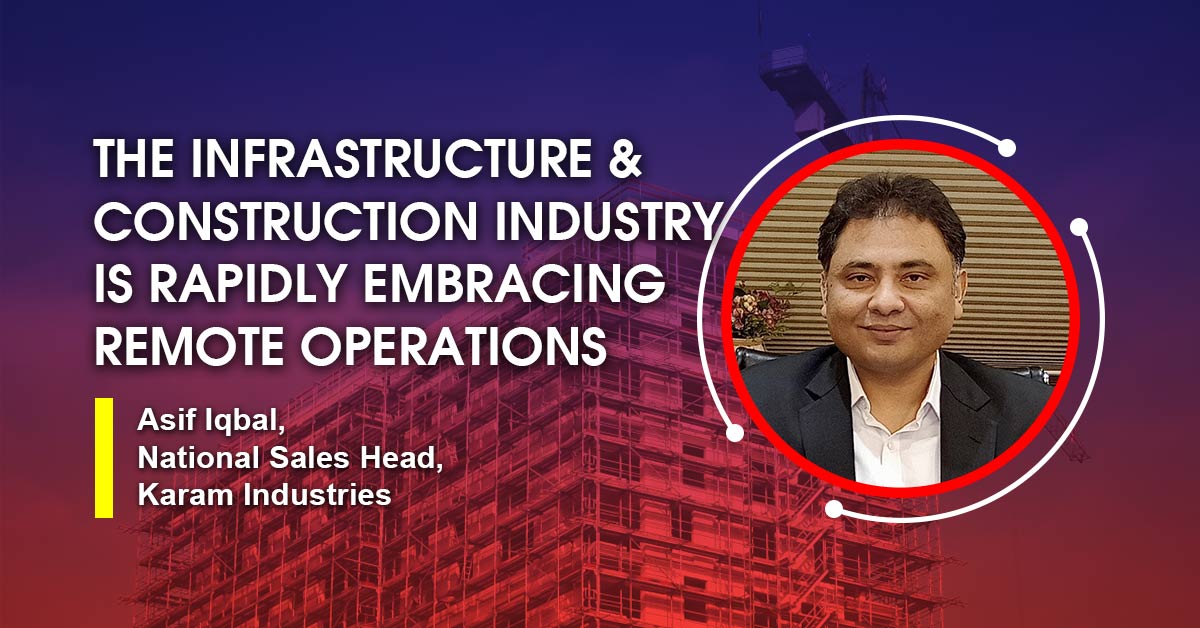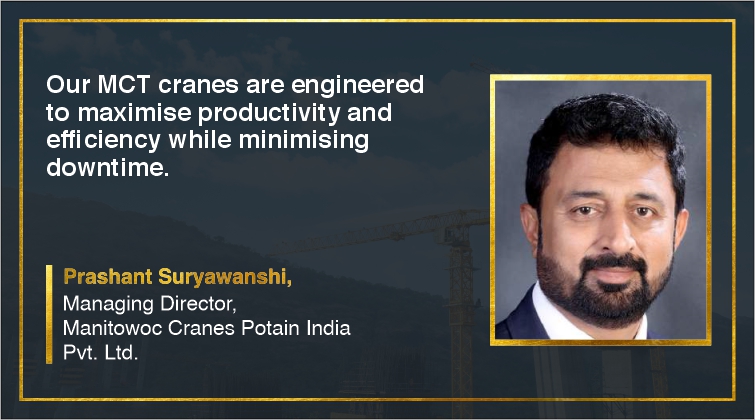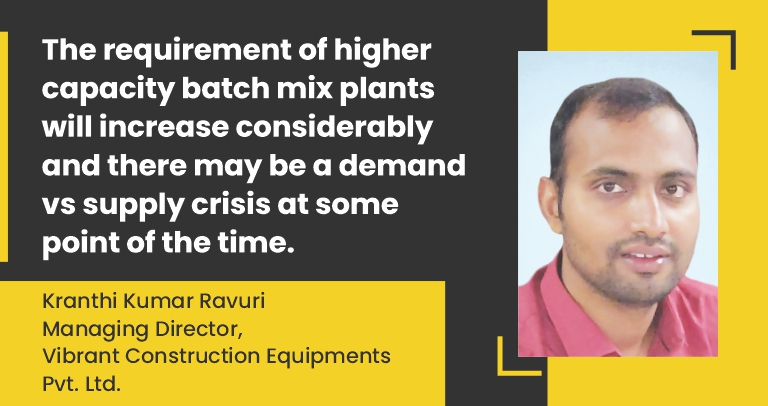The infrastructure & construction industry is rapidly embracing remote operations
By Edit Team | May 8, 2021 6:04 pm SHARE

For the construction industry, this pandemic induced slowdown is a good opportunity to accelerate its digital transformation. Compared to other industries globally, the sector has lagged in productivity for decades, says Asif Iqbal, National Sales Head, Karam Industries.
What kind of safety and security practices should be in place for large-scale construction and infrastructure projects in India?
Construction work is one of the riskiest jobs and the workstations are incredibly unsafe. Employers need to reduce safety hazards for construction workers and the workers need to be extra careful when working in such dangerous situations.
Here are some important safety precautions that can reduce accidents and keep people safe at work on construction sites:
• Start with safety training as most of the construction worker skills can be acquired on the job but safety is one set of skills that are best learned before jobs enter the construction site.
• Provide appropriate personal protective equipment (PPE) including safety harnesses, safety goggles, helmets, and fall protection depending on the type of work. These safety equipment are essential in implementing a safety plan and ensuring safety at construction sites.
• Use clear signs everywhere so that all safety procedures are easily accessible. Signs should also indicate site facilities, entry and exit points, and first-aid or emergency equipment.
•Plan and adapt to unfavourable environmental conditions as adverse weather conditions can invite major hazards to construction sites.
• Make sure chemical safety requirements are strictly adhered to as they can cause contamination, fire, explosion and serious damage if not stored, handled or used with caution.
Post pandemic, would it be fair to assume that there will be a strong emphasis on maintaining safety and social distancing at construction and infrastructure sites?
Responding to the barriers of Covid-19, like other industries, infrastructure and construction industry is rapidly embracing remote operation, transforming the business environment. Keeping projects going while you are always adhering to health and safety guidelines for social exclusion can be a challenge. There is a great need to open construction sites and work to avoid any costly delays, but doing so safely in a way that protects the health of staff and visitors, and controls the threat of coronavirus is essential. Create or update your Covid-19 response system to prevent or delay the spread of Covid-19 in your workplaces. Employers should be prepared to update or refine response systems based on changes in disease risk.
This may include activities in one or more of the following areas:
• Maintaining critical business operations.
• Reducing job transfers between employees and the community.
• Maintain a healthy work environment.
What kind of latest technological innovations are we witnessing for safety and security products in the post-COVID-19 era? For the construction industry, this pandemic-induced slowdown is a good opportunity to accelerate its digital transformation. Compared to other industries globally, the sector has lagged in productivity for decades. The industry can go the extra mile by using modern technology, including data-rich 3D models, cloud based on-site and off-site project communications and constructible BIM for error-free construction.
Furthermore, digital devices like drone cameras enable following up on construction sites remotely. This period of isolation is perhaps a good time for professionals to upscale their skills and find new ways of working digitally on progressive devices and platforms.
Recently, the World Health Organisation (WHO) cautioned about the long-lasting effect of the virus, believing it will stay amongst us longer than expected. In this situation, social distancing may become the new norm and people will need to find yet new ways to be more productive.
Cookie Consent
We use cookies to personalize your experience. By continuing to visit this website you agree to our Terms & Conditions, Privacy Policy and Cookie Policy.




































-20240213125207.png)

























